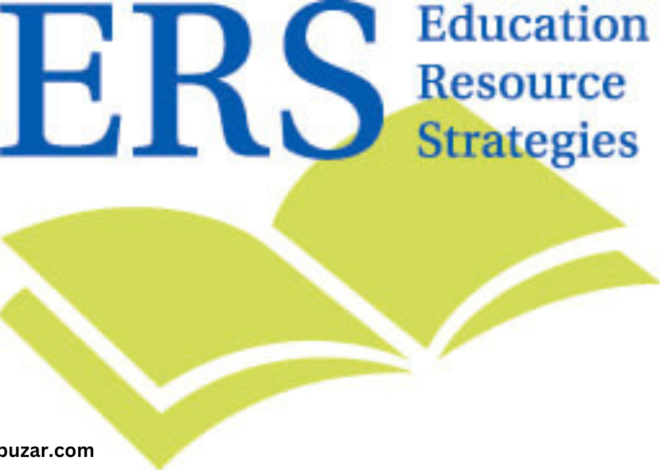
Education resources information center: Mastering Your Studies :Best Education Resources for 2024
Education resources information center plays a pivotal role in shaping societies, and access to quality educational resources is crucial for ensuring the success of educators, researchers, policymakers, and learners alike. One such invaluable resource is the Education Resources Information Center, commonly known as Education resources information center
Introduction to the Education Resources Information Center (ERIC)
ERIC serves as a digital repository for educational research and information, supported by the Institute of Education Sciences (IES) within the United States.
Department of Education. It provides access to a vast collection of educational literature, including journal articles, research reports, conference papers, and other resources related to all aspects of education.
History and Background of ERIC
Establishment and Purpose
Established in 1966, ERIC was created to facilitate the dissemination of educational research and information to educators, researchers, policymakers, and the general public. Its primary objective is to improve the quality of education by providing easy access to reliable and up-to-date resources.
Growth and Evolution
Over the years, ERIC has grown significantly, expanding its database and enhancing its features to meet the evolving needs of its users. Today, it stands as one of the largest and most comprehensive repositories of education-related literature in the world.
Functionality and Features of Education resources information center
Database Structure
ERIC’s database is organized into various categories, including subject areas, publication types, and educational levels. Users can browse through these categories or use the search function to find specific resources.
Search Options and Filters
ERIC offers advanced search options and filters, allowing users to refine their searches based on criteria such as publication date, author, subject, and document type. This helps users find relevant resources more efficiently.
Accessing Resources
Most of the resources in ERIC are available online for free, although some may require institutional access or subscription. Users can download full-text documents, access abstracts, and view citation details for further reference.
Benefits of Using Education resources information center
Comprehensive Information
ERIC provides access to a wide range of educational literature, covering various topics, disciplines, and research methodologies. From early childhood education to higher education, ERIC offers comprehensive coverage of the field.
Quality Research Materials
The resources available in ERIC undergo a rigorous selection and review process to ensure their quality and relevance. Users can trust the credibility of the content available on the platform, making it a valuable resource for academic research and professional development.
Accessibility and User-Friendly Interface
One of the key strengths of ERIC is its accessibility and user-friendly interface. The platform is designed to be intuitive and easy to navigate, allowing users to quickly find the information they need without any hassle.
How Education resources information center Supports Educators and Researchers
Curriculum Development
Educators can use ERIC to access teaching materials, lesson plans, and instructional strategies to enhance their classroom practice. The platform offers valuable insights and resources to support curriculum development and instructional design.
Professional Development
Researchers and educators can stay updated with the latest trends and developments in the field of education by exploring the diverse range of resources available on ERIC. From scholarly articles to conference proceedings, ERIC provides valuable opportunities for professional growth and learning.
Policy Making
Policymakers and stakeholders can utilize ERIC to access research-based evidence and data to inform their decision-making processes. The platform offers valuable insights into education policy issues, best practices, and evidence-based interventions.
Examples of Education resources information center Resources
Research Studies
ERIC contains a wealth of research studies and empirical research articles spanning various educational topics and disciplines. From quantitative studies to qualitative research, users can find a wide range of scholarly literature to support their research endeavors.
Teaching Guides
Educators can access teaching guides, lesson plans, and classroom activities to support their instructional practice. ERIC offers practical resources and tools designed to enhance teaching effectiveness and student learning outcomes.
Policy Briefs
Policymakers and stakeholders can access policy briefs, white papers, and reports on education policy issues and initiatives. These resources provide valuable insights and recommendations for addressing key challenges and improving educational outcomes.

Challenges and Limitations of ERIC
Availability of Resources
While ERIC offers a vast collection of resources, some topics may be less extensively covered than others. Users may encounter challenges in finding resources on niche or specialized topics.
Coverage of Topics
The scope of ERIC’s coverage is extensive, but it may not encompass every aspect of education. Users may need to consult additional sources for in-depth coverage of specific topics or subfields.
Updates and Maintenance
Ensuring the currency and accuracy of the content in ERIC requires ongoing updates and maintenance. While efforts are made to keep the database current, some older resources may become outdated over time.
Tips for Effective Use of Education resources information center:
Utilizing Advanced Search Techniques
Take advantage of ERIC’s advanced search options and filters to refine your searches and find relevant resources more efficiently. Experiment with different search terms and criteria to maximize your results.
Saving and Organizing Resources
Use the bookmarking and saving features in ERIC to keep track of useful resources and organize them for future reference. Creating folders or tags can help you categorize and manage your saved items effectively.
Staying Updated with New Content
Regularly check for updates and new additions to ERIC’s database to stay informed about the latest research and developments in the field of education. Subscribe to newsletters or follow ERIC on social media for announcements about new content.
Conclusion of Education resources information center
The Education Resources Information Center (ERIC) is a valuable resource for educators, researchers, policymakers, and stakeholders in the field of education. With its comprehensive collection of research literature, user-friendly interface, and diverse range of resources, ERIC supports evidence-based practice, professional development, and informed decision-making in education.
FAQs
Is ERIC only for educators and researchers?
- No, ERIC is accessible to anyone interested in education research and information, including students, parents, policymakers, and practitioners.
Are all resources in ERIC available for free?
- While most resources in ERIC are freely accessible online, some may require institutional access or subscription.
Can I contribute my research to ERIC?
- Yes, researchers can submit their work to ERIC for inclusion in the database, subject to certain criteria and guidelines.
How often is ERIC’s database updated?
- ERIC’s database is regularly updated with new content and revisions to existing entries to ensure currency and accuracy.
Is ERIC available in languages other than English?
- Currently, ERIC primarily features content in English, but efforts are underway to expand its multilingual capabilities in the future.


